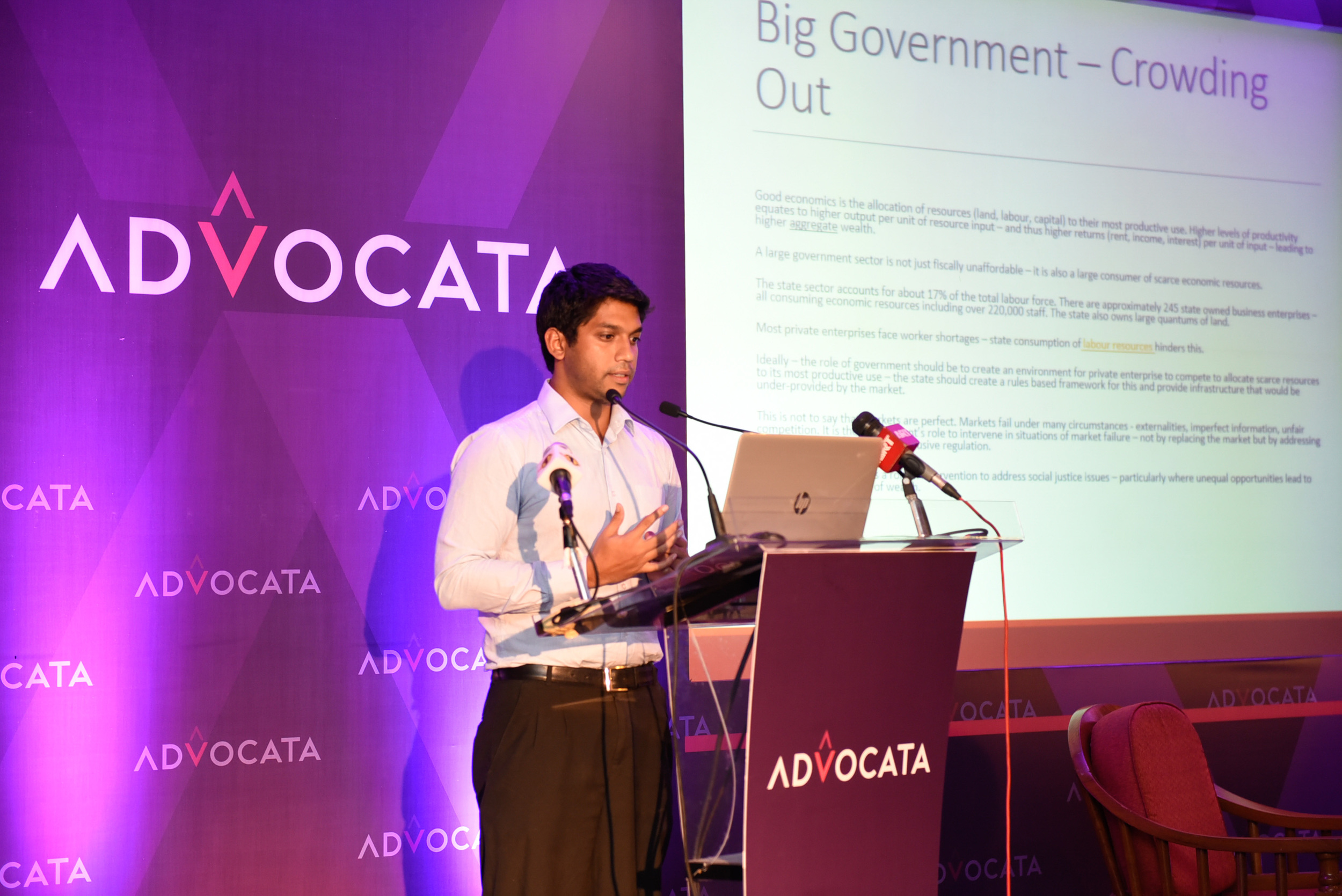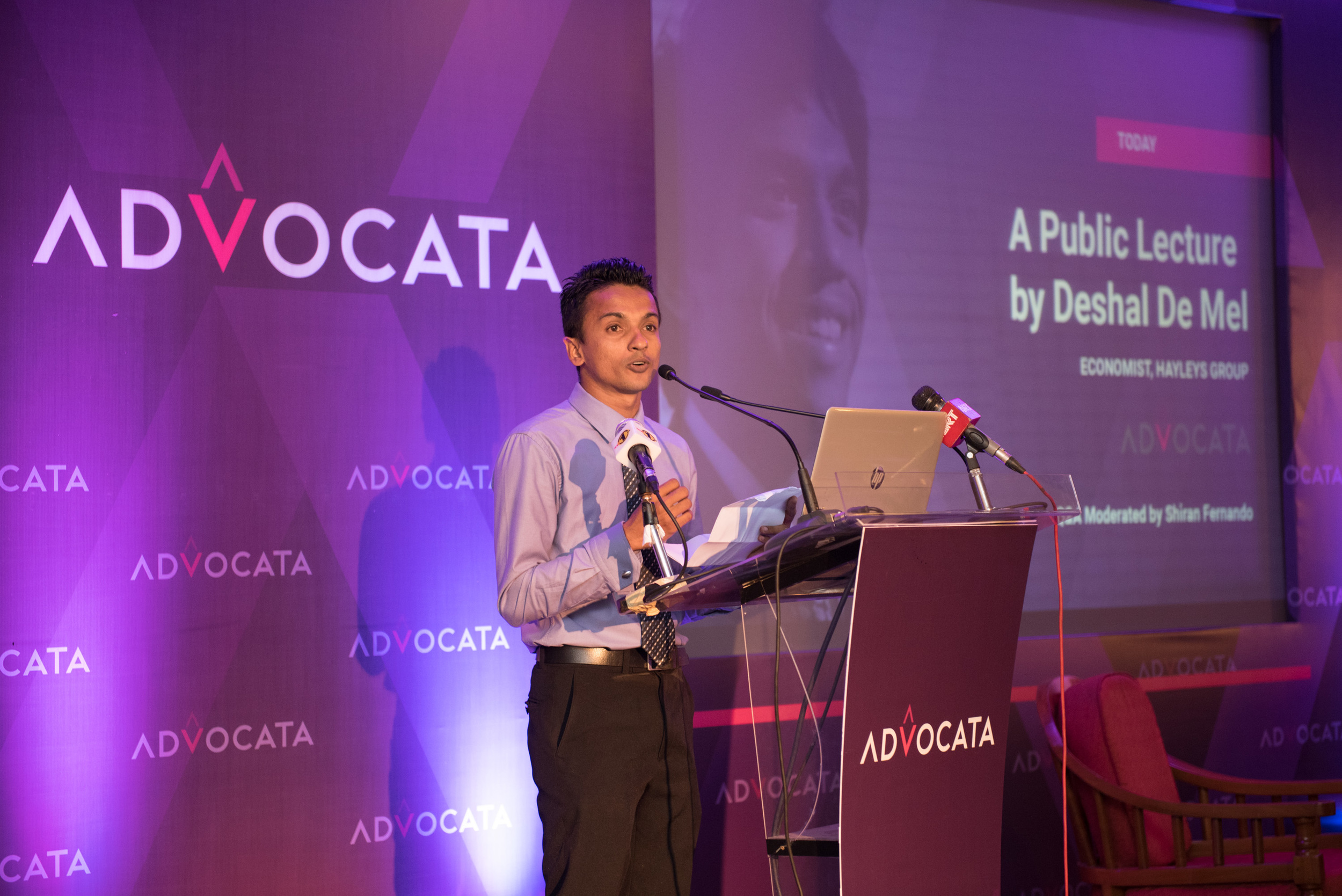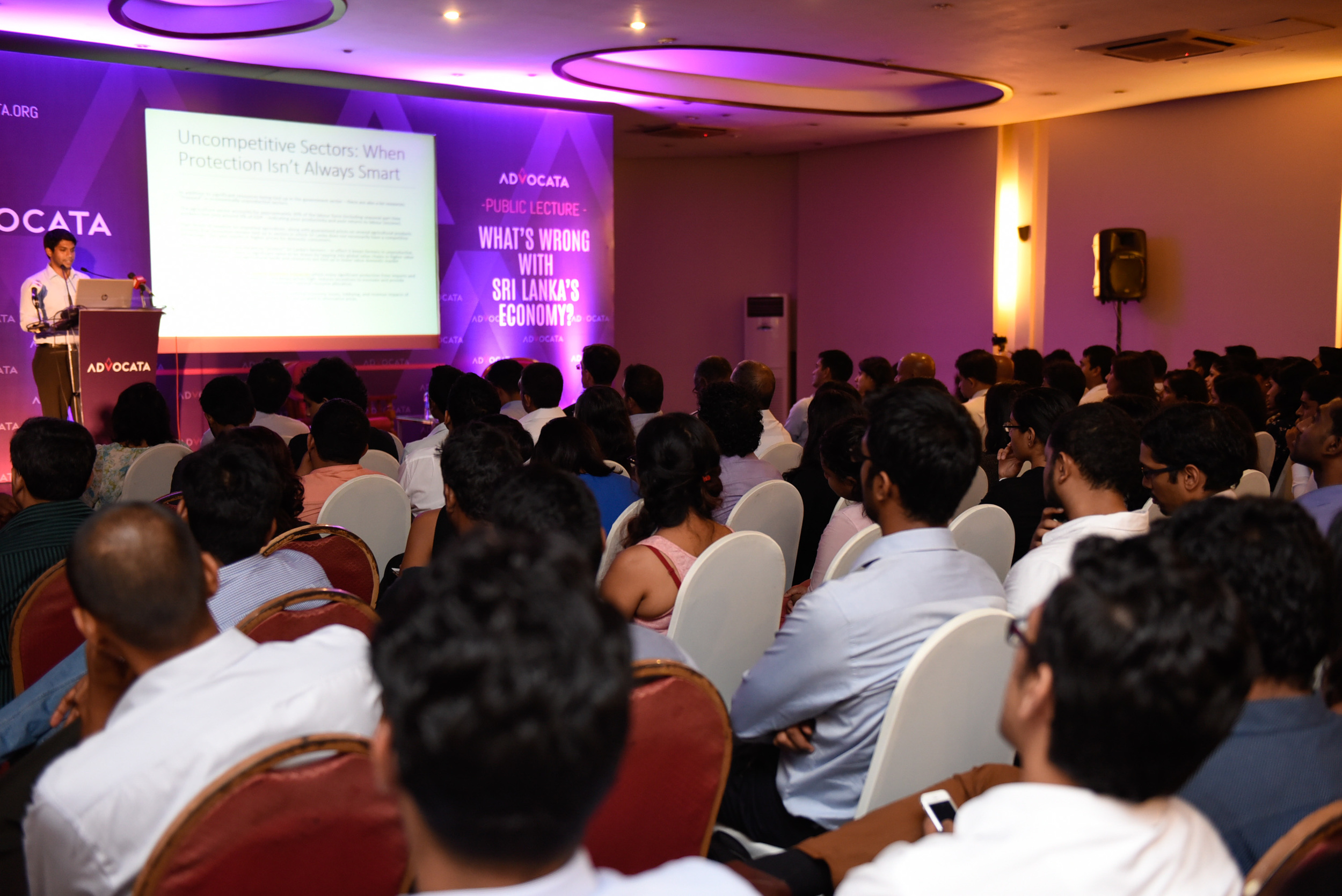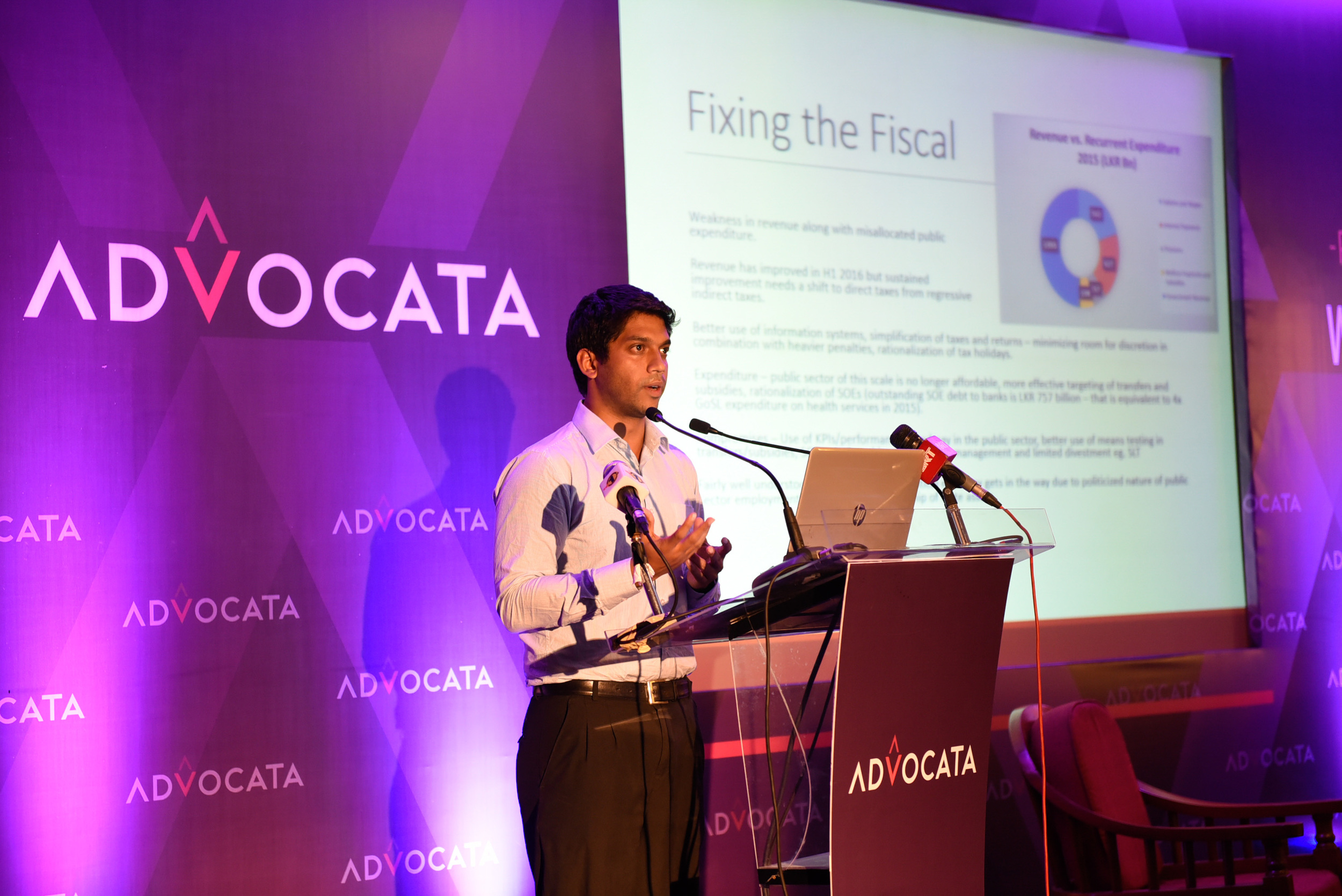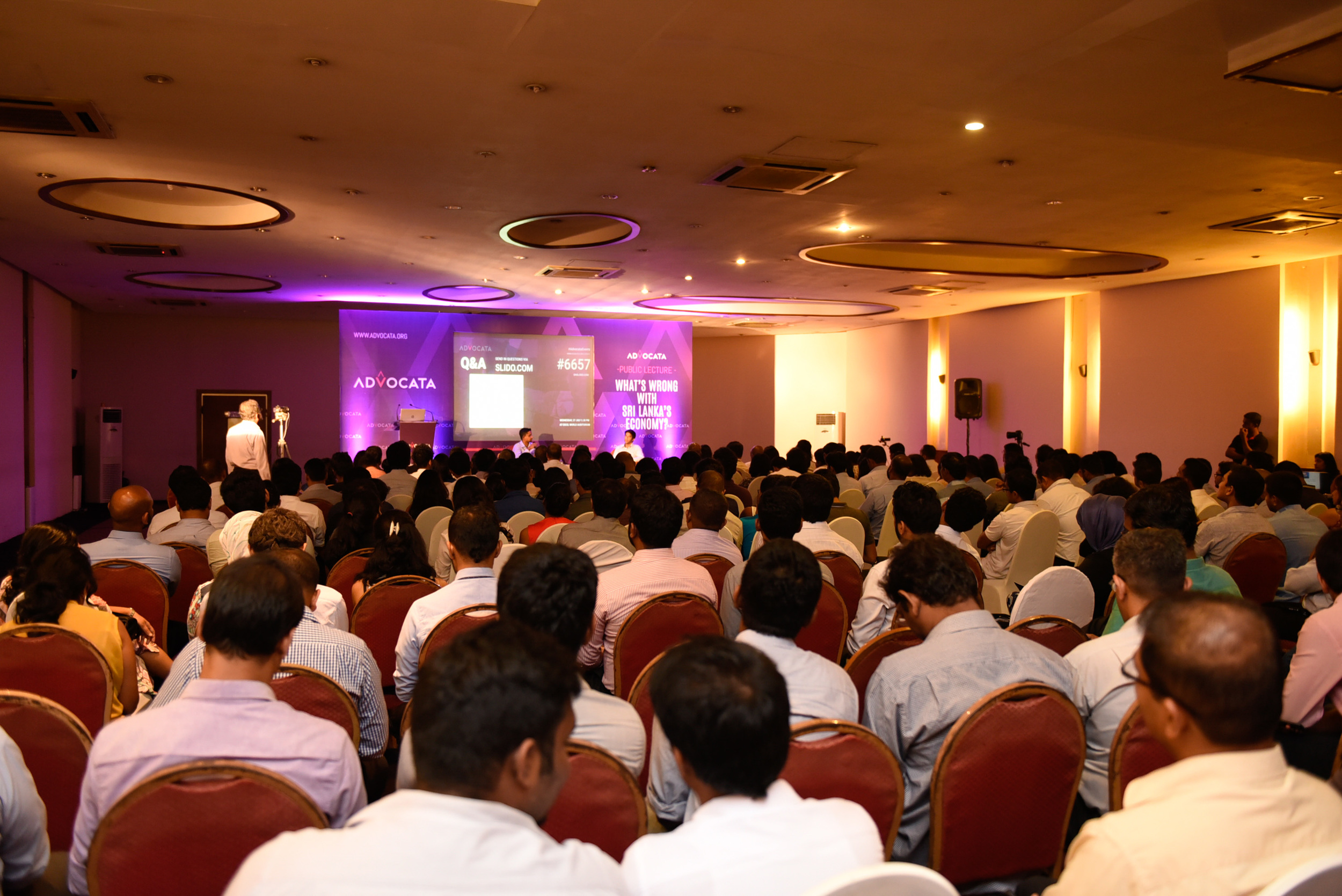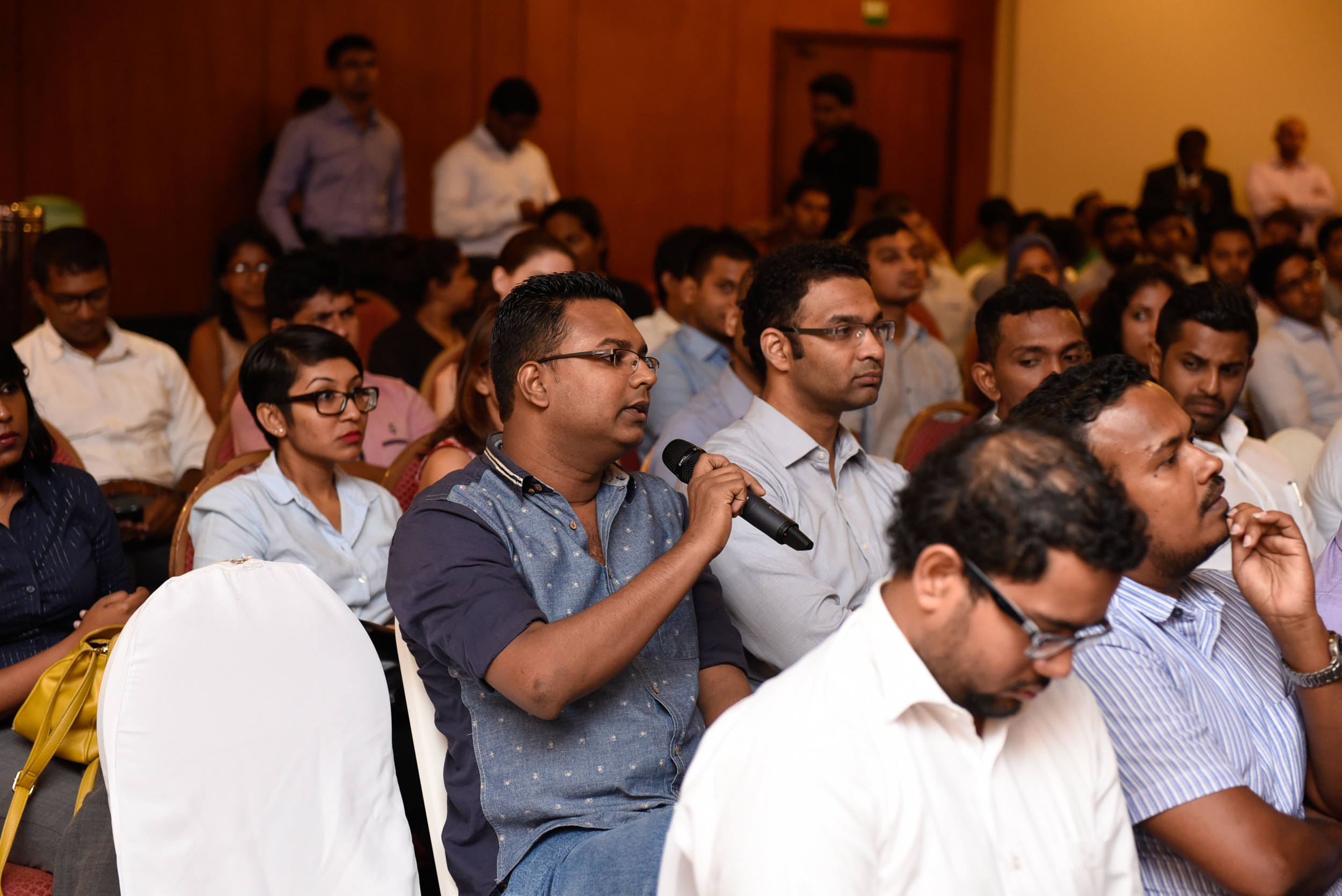Deshal de Mel delivering the lecture organized by Advocata Institute
Senior economist at Hayleys Group, Deshal de Mel gave the inaugural lecture on a public lecture series organized by Advocata Institute last month.
A crowd of more than 200 people attended the lecture which concluded with an engaging Q&A session moderated by Shiran Fernando, an economist attached to Frontier Research.
Delivering the lecture, Deshal said that the biggest risk to the Sri Lankan economy is the ability to meet the external debt repayments. Until about 2005, Sri Lanka had very easy access to long term finance said Deshal, who went on to explain that with the elevation of the country to a middle income status country, Sri Lanka lost access to this low-interest rate loans that allowed the government to maintain a very large government in terms of employees, and activities in the economy as well as accumulate a huge amount of debt.
Continuous deficits that the government keep running and the accumulated debt is one of the key reasons for macroeconomic instability explained Deshal. High government borrowing crowds out the private investment and vulnerable to episodes of monetary expansion leading to inflation the economist said.
"Big Government" policies including the maintaining of loss-making state enterprises, large public sector and targeted subsidies and transfers have all resulted in the deficit that the government tries to bridge by borrowing and indirect taxation, which creates further distortions according to Deshal de Mel.
The large government is not just fiscally not affordable, but also is a consumer of scarce resources explained the economist. "The state owns large quantum of land, and employs about 17% of the entire labour force" all consuming economic resources whilst the 245 odd State owned enterprises employs a further 220,000 people.
Deshal believes that there is a role for the government in addressing wealth inequalities resulting from unequal opportunities and for state intervention when markets fail through smart unobtrusive regulation. However, he says that the big government policies have not helped in sectors where state intervention is generally accepted, for example in Education where outcomes indicate that only around 50% of students pass science related subjects.
Resources tied up in unproductive sectors such as Agriculture represents another problem Deshal explained. The Agricultural sector accounts for a massive 30% of labour force, but only accounts for 9% of GDP. The protectionist policies with the stated aim of 'protect' farmers has resulted in resources being tied up in lower value domestic agriculture instead of utilizing the full resource pool of agricultural land, farmers and other resources into global value chains and higher value agriculture.
Sri Lanka has also failed to attract export oriented Foreign Direct Investment (FDIs) making use of it's strategic location Deshal said and emphasized on a proactive approach to attracting FDIs such as targeting multinationals with operations in southern India to set up Shop in Sri Lanka.
In order to fix the Sri Lankan economy, Deshal recommends that the first thing to do is to rationalize government expenditure. Cutting back on size, and particularly state owned enterprises. Enhancing government revenue through simplification of taxes and relying on direct taxes. He also emphasize the need to focus on education, ensuring an environment of more private participation in the supply of education and gradually decreasing trade and domestic protectionism as possible ways of remedying the problems in the Sri Lankan economy.
While acknowledging the political realities and difficulties in bringing about economic reform, Deshal said that a possible starting point is reforming State Owned Enterprises, where there is increasing awareness of it's ill-effects.
Advocata's research report on SOEs are found on our research section. Advocata Institute organizes monthly lectures focused on the broad theme of 'fixing the Sri Lankan economy'.
full slide deck from the lecture is available below. See more articles on the event . Deshal was speaking in his private capacity as an economist.


